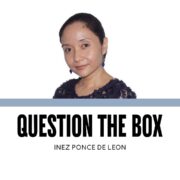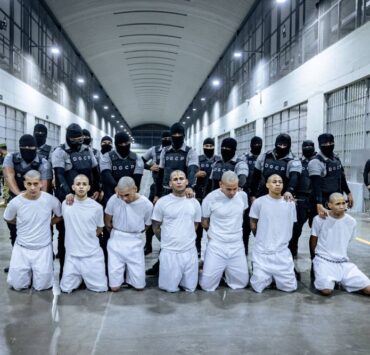The challenge to face the truth in a world that often denies it

The arrest and subsequent handover to the International Criminal Court of former president Rodrigo Duterte to face allegations of crimes against humanity has sparked a significant outpouring of legal discourse in mainstream media. This event has also precipitated a wave of politically charged and often misleading propaganda across social media platforms. These two contrasting side effects of Duterte’s time of reckoning bring to mind one of the most memorable lines in a 1992 legal drama, “A Few Good Men,” where the character played by Jack Nicholson shouted: “You can’t handle the truth,” after the character played by Tom Cruise said, “I want the truth.” The scene invites the audience to critically examine the intricacies distinguishing “my truth” and “your truth” from “the truth.”
The phenomenon of why we frequently find it challenging to handle the truth has been the focus of extensive studies in social psychology. Three prominent theories attempt to make sense of this phenomenon.
First is denialism, or an individual’s rejection of the truth to avoid facing its mental and emotional challenges. When faced with the truth, especially the ugly ones, it conflicts with our fallible worldview, raw emotions, or traditional lifestyle. We reject it, mainly, if the revelation necessitates reconsidering or requires attitudinal change. A poignant example of this is when a doctor informs his patients that they have only a few months to live. Elisabeth Kübler-Ross conceptualized the expected response as encompassing denial, anger, bargaining, depression, and acceptance.
The second is cognitive dissonance, which suggests that individuals experience discomfort (dissonance) when their beliefs, values, or attitudes conflict with their behaviors or new information. This discomfort arises when one’s understanding diverges from reality—such as when individuals mistakenly believe, despite the evidence, that holding public officials accountable can only be politically motivated or that those killed in the so-called blood-soaked war on drugs were often criminals. To alleviate this discomfort, they may either, at best, adjust or modify their beliefs according to available evidence or, worse, reject them outright without thinking about the conflicting information.
The third is confirmation bias, which is the tendency to search for data that can confirm our beliefs instead of looking for data that might challenge and alter those beliefs. The bias degrades our judgments when our initial beliefs are wrong because we might fail to see the truth until it is too late.
Once upon a time, premodern societies relied heavily on endorsing authorities’ or experts’ opinions as sufficient grounds to take their word for it, not based on proof or evidence. However, in a postmodern world, when the appeal to authority has become a weak argument, and the truth is based on what people feel about it, we must embrace a methodical, evidence-based scientific search for the truth we all want, like water seeking its own level.
Against our propensity to be gullible, a rigorous education in critical thinking has become pivotal, equipping us with the tools to question the validity of truth claims from all spectrums, particularly from the paid army of trolls and peddlers of fake news. A profound sense of humility should guide our quest for understanding and acknowledging the inherent limitations of each other’s vantage points.
NOEL ASIONES,
noelgasi2000@yahoo.com

















Fighting poverty, bridging inequality